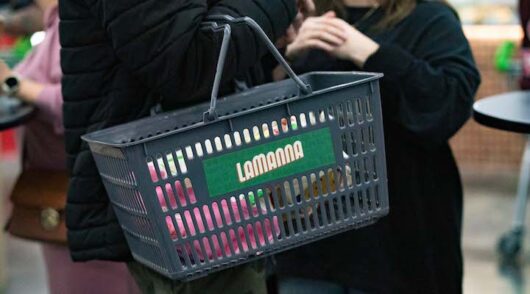Online liquor company Hello Drinks has ditched the traditional warehouse in favour of a cloud-based store, that is set to save the business up to six figures annually in rent costs. The drinks business completed live testing in October and has now relaunched as the largest cloud-based superstore in the country. Hello Drinks founder JP Tucker said it is a first in the Australian liquor industry and is a win for both customers and wholesalers. “It’s great for our customers, as it offers more c
rs more choice, new categories and brand extensions,” Tucker told Inside Retail.
The business, which started out operating from Kennards Storage five years ago with just 12 products, was offering around 200 products at the height of the pandemic and pulled in seven figures last financial year. But with third-party logistics (3PL) impacting its bottom line, Tucker looked at how he could work with wholesalers to eliminate these costs.
“Our biggest problem was 3PL costs. We had around 200 truck deliveries from wholesalers last year. We have to pay for that stock and it sits in our [warehouse] where we pay rent. It eats into our margin and, more often than not, by the time we sell it we haven’t made anything,” Tucker explained.
Tucker went straight to wholesalers and asked to plug into their warehouses to ship direct to customers and, in effect, turn over more stock for wholesalers at a time when on-premise is struggling.
“We locked up our doors and said to wholesalers, ‘we’re going to deliver you seven figures this year, and we’re going to grow our own business to become an eight figure business’. We’ve brought the wholesaler into that retail space whereas previously their business was 95 per cent on premise,” Tucker said.
The move to the cloud has allowed Hello Drinks to eliminate rental costs, while scaling up to 4000 products.
“We don’t pay $1 in rent, and only pay for stock once we have sold it,” Tucker said.
“We’re able to bring a wider range of products [to customers], we have access to nearly every liquor brand that’s inside that wholesaler, and we’re able to access it at better pricing.”
Better for the environment
The move to cloud also means fewer trucks on the road so it’s beneficial to the environment. Traditional marketplaces like Dan Murphy’s, Amazon and Catch often ship items from multiple vendors, which results in multiple deliveries to the customer.
Tucker said this means more vans on the road, increases the backlogs at couriers and drives up supplier costs. Through testing, Hello Drinks found customers weren’t satisfied with this model and wanted a better customer experience.
Tucker said the cloud model is leaner and more cost effective for suppliers.
“Today, 95 per cent of our product range sits under one cloud, which, more often than not, will result in one delivery to our customer, not only reducing our shipping costs, but [eliminating] approximately 250 truck deliveries to our shed,” he said. “That crosses out the need for a forklift to load and unload 1000+ pallets, which has a positive impact on reducing our carbon footprint.”
Tucker said it was always his vision to become a cloud-based business but he felt the industry wasn’t ready for it in the early stages. During Covid, Hello Drinks experienced 400 per cent sales growth, and changes in customer shopping behaviour signalled an opportunity.
“The pandemic has had a positive effect on our business as we are seeing more customers shopping online for drinks,” Tucker said.
“While we don’t have the budgets of the supermarkets, their marketing spend is bringing new customers to the category, [and] we have had some success in intercepting their traffic to showcase our independent business. With a solid plan in place, we aimed to come out of Covid stronger than we peaked, and we are already seeing the benefits of the changes.”
Hello Drinks’ first cloud store is up and running in Sydney, and the online retailer is in talks to open one in Melbourne in the new year. Tucker said it will allow the business to manage next-day delivery for Australia’s two major cities while avoiding interstate courier costs.







